Graham Reid | | 8 min read
Steve Earle: 21st Century Blues
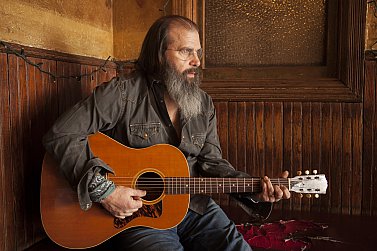
No subject – be it family, money, his job or politics – is off-limits in a conversation with Steve Earle, if you can get a word in. A talker whose conversation takes off into interesting tangents, Earle is like Bruce Springsteen, a well-off musician who can relate to the working class and those suffering economic privation.
His most recent album with his band The Dukes (and Duchesses), The Low Highway (reviewed here), paints an unflinching picture of an America where discontent, bad drugs, unemployment and business closures have changed the social and emotional landscape. In one song a seething and disaffected character considers burning down the local Walmart.
In his liner notes however Earle admits he's “an upscale gypsy, flying first class or rolling down the highway in a three quarter of a million dollar bus”. That candour endears him to his audience.
He's also out there constantly connecting and this conversation catches him on a rare break before he hits the road again across the United States and comes to New Zealand next year (tour dates below).
But then . . .
I notice there is a gap on your schedule after Christmas. Do you need to keep free time for recording and writing, or is that just family time?
The normal pattern for us is make a record and tour and now we're halfway through doing pretty much what we always do. The record came out in April and I did an extensive press tour in January in Europe then the USA in April. By May we were on the East Coast (of the US) then into Europe, back to North America for July to September and then starting that leg again in October.
I've sometimes come to Australia and New Zealand early in the cycle, but it's so far away and the priority is North America, although I make more money per night in England than I do any place else. It's English-speaking countries for me and it doesn't have to be Commonwealth, because I do really well in the Netherlands because everyone can understand what I'm singing about. And in Scandinavia.
What I do is about is about language so I don't want to lose an English-speaking territory. But it's so far to New Zealand.
I've never played in Japan. The Pogues and other friends do well there and for them Australia is part of that touring circuit.
Let's talk about The Low Highway. I'm impressed with your candour in the liner notes about you being well-off but not immune to the hard times you are aware of. Is your music giving a voice to the voiceless, a cathartic experience for the audience?
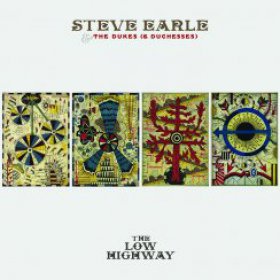 I hope so, it is for me. This tour has
been about me being really appreciative and personally thanking
people for turning up and parting with money to see a country-rock
band in times like these. I'm more grateful than I've ever been and
go out to the merchandising table and sign stuff after every show.
I hope so, it is for me. This tour has
been about me being really appreciative and personally thanking
people for turning up and parting with money to see a country-rock
band in times like these. I'm more grateful than I've ever been and
go out to the merchandising table and sign stuff after every show.
It's different now than it was.
Ireland is the most radical example I know because I spend a lot of time there personally as well as professionally. It went from being the poorest country in Western Europe to being the one that benefited the most from the European Union and had this booming economy. It wasn't losing its best and brightest for the first time in 150 years . . . and then it all came crashing down.
The last two tours I failed to sell out the Olympia Theatre [in Dublin] for the first time ever.
I was ready to slit my wrists but the promoter said, “It's not you man, it's everybody.” It's hard to sell tickets there now because there's no money. And that's the way it was in the Eighties when I first went. I sold more tickets then because they were cheaper.
This record was born when I was touring to support I'll Never Get Out of This World Alive with this band. Australia and New Zealand didn't get to see the band because I couldn't afford to bring it, it would have lost money. But I came solo.
When I made the Washington Square Serenade album [released 2007] I toured with a DJ and then made the made the Townes record [2009] where I toured solo. So I had to put together a band to play this album, which I did with [producer] T-Bone Burnett and used his guys. The new band is my old rhythm section, the bass player Kelley Looney has been with me since Copperhead Road [1988] and the drummer Will Rigby since Revolution Blues in 99. Then there are these new players Chris Masterson and Eleanor Whitmore who record as the Mastersons. I met Chris when he was with Wayne Hancock in Australia.
The themes of The Low Highway are uncompromising and very real.
You've got to write songs about something. I realised looking out the window of the bus was an America I'd never seen before, and even Bob Dylan never saw. An America much closer to what Woody Guthrie saw, a place where people are really suffering.
It's not as bad in Europe, Australia and New Zealand because these countries have a better social safety net than we do in America, and we're seeing the weaknesses in the way we do things right now. They talk about jobs coming back, but they are minimum-wage service jobs and it's not going to be the country I grew up in if this is what the recovery is.
It's tough to watch.
Some of your audience would be middle-class folks not doing to badly but who quite like identifying with the working class tough. Is that fair?
I'd love to think romantically my audience is all blue-collar people, but it's not. My audience is the NPR audience – National Public Radio people. It gets very little government funding and less and less all the time. It's considered to be left-wing (laughs) by American standards.
So my audience is people who politically think like I do. It's a strange thing when I try to figure out what my audience is like here in the US compared to other places.
I think there's an interest in American music that exists all over the world. Australians are the closest things that exist to Americans, in good ways and bad ways. It's like Texas with an ocean all around it.
New Zealand for me is . . . put it this way. I like to live in a city, I need to put my finger in a light socket every now and again. But if I was ready to live in place with a lot less people, New Zealand looks really good to me because I see more people who think like I do.
New Zealand hosted the Greenpeace fleet, and environmentally and politically it's close to the way I think than my own country is in a lot of ways.
It's like here we have the biggest gap between haves and have-nots that exists in developed country. I think you'd have to go to somewhere like Brazil to find that gap, a so-called Third World country where a smaller percentage of people holding the wealth.
I notice on this album again there are certain touchstone characters you reference once again: Kerouac, Guthrie, Kennedy. For you are they emblematic of an America that was once was great but is now lacking?
I think it's more something that America aspires to be and can hope for. I don't think there was ever any chance Woody Guthrie being president, I don't think Jack Kennedy was what a lot of people thought he was. I think he turned out to be more than what he set out to be, his brother certainly changed and the moment in history made him.
I think the world might have been a better place if Jack Kennedy had lived because I think he would have stopped the Vietnam war even though he kind of started it and amped it up. But he was getting ready to pull the plug. There are people who believe that's why he was killed. I grew up in Texas but I don't have any guns anymore. I got rid of them all on purpose and I've changed my thinking about that. But I grew up in that gun culture.
I don't believe that one person killed Jack Kennedy because I killed something like 17 deer – all of them with bolt-action rifles – before I stopped hunting, that's between the time I was 12 and maybe 37 or 38. And I promise you no one made those shots from that window [in the Texas Book Depository Building in Dallas]. I've been there and looked out and I've killed deer with a similar rifle and I'm tellin' you it didn't fuckin' happen. That's the deal.
But in this country it's like almost everyone . . You know, I didn't know anyone who believed just one person killed Jack Kennedy when I was growing up. And now everyone believes it.
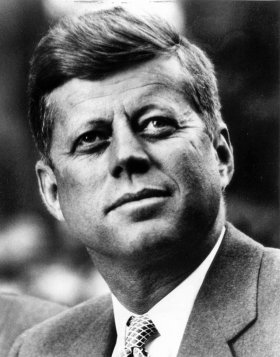
I know pretty hard left-wing journalists – by our standards – that have accepted the Warren Commission's finding verbatim because they feel they won't have any credibility and no one will take them seriously if they don't and espouse something else.
I find that quite sad.
I don't believe we did 9/11 (laughs) but usually the thing that makes the most sense and is easier to believe is easier to arrive and is what happened.
What I do believe is more radical than that, [it happened] because we supported the House of Saud and because we support Israel. Not that I'm against Israel, but that was one of the reasons we got attacked. Those guys were radical Saudis. That makes more sense than the government doing it . . . because they [the US government] were going to go into Iraq anyway and this just gave them, “Oh cool, this is why were doing this”.
That's a proven thing, they were going to do it anyway, they didn't have to knock down the Twin Towers, they were arrogant enough they didn't need to.
Let's talk about something very personal. The final song on The Low Highway, Remember Me, is very beautiful. I know your father's death affected you and I guess this song is about you confronting mortality and acknowledging you might not be around to see your young son grow up.
I was 55 when he was born, he is now three, and that makes me an optimist.
And on top of that he has autism, diagnosed when he was barely 2 so we caught it early and we've got good resources. He's in a really good school in New York City and has a better shot than most people of being okay, although he'll be okay one way or the other. He was talking until he was 18 months old and then he just stopped and no one knows why.
I knew he had autism when I wrote the song, but I know my job and sometimes that is empathy.
This job is about finding thing that are deep and personal to you and being willing to come out with those things and to talk about them. It's about your common experience with your audience and not how different from them you are, at least that's the ay I see it.
I wrote Little Rock'n'Roller 23 year ago and that was written about [his oldest son] Justin and he's 31 now, the age I was when the Guitar Town album came out.
It was a hard personal thing to write then. I was not living with his mother anymore and even if I had I'd have been on the road a lot. And I had a drug habit at the time which was getting ready to take me away from him and everybody else for a while.
But people come and talk to me about that song – like truck drivers, because you don't have to be traveling in the music business. People don't want to hear you singing about you being sorry for yourself if you are riding around in a bus that cost more than their fuckin' house, that's not what this job is about.
But they do want to hear that because you travel you miss your kids, because they miss theirs when they travel. And that makes them feel like they are not alone.
I understand what this job is. I'm an entertainer. I'm a political person but I'm not necessarily a political artist. I just started making art in an era when the two thing went hand in hand. I don't feel the need to nor am I interested in separating the two. It doesn't make any sense to me.
For more on Steve Earle at Elsewhere including album reviews and previous interviews go here.
STEVE EARLE NEW ZEALAND DATES
Steve Earle and the Dukes, with the Mastersons
Powerstation, Auckland April 26
St James Theatre, Wellington, April 27

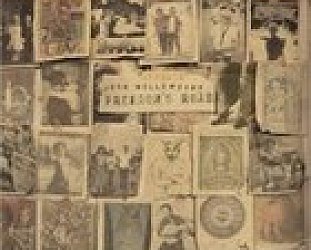
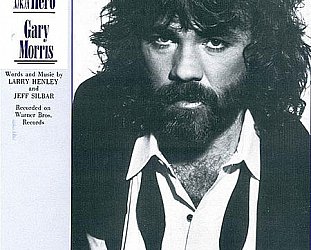
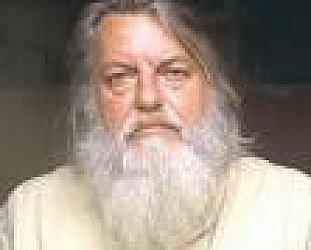
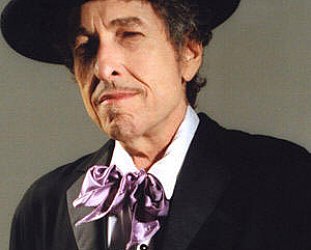
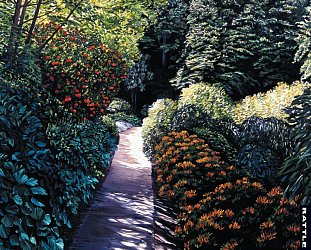
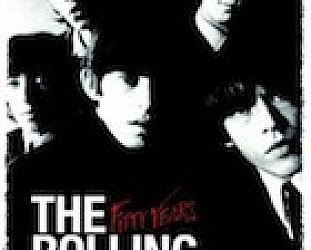
post a comment